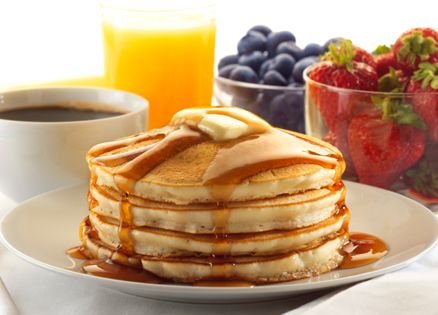Some call them flapjacks, some hotcakes, some crepes, latkes or blinis, but whatever they’re called in your house, pancakes are an American staple. But they didn’t start out that way. The pancake’s origin comes from a European religious custom.
In medieval times, families preparing for Lent made use of the perishable foods that would be forbidden during the Lenten fast—items like butter, eggs and lard. By mixing them together and then throwing in some flour, the pancake was born.
Shrove Tuesday’s name, however, isn’t derived from its association with the pancake. The feast, celebrated before the day Lenten fast begins, gets its name from the ritual of ”shriving,” in which churchgoers confess their sins and receive absolution.
While the practice dates back nearly 1,000 years, nowadays Shrove Tuesday activities focus more on, you guessed it, food. Churches traditionally host pancake suppers and even the day itself is now known in the U.S. as National Pancake Day.
But while Shrove Tuesday is a day of feasting and celebration (lard, by the way, is called “gras” in French—as in Mardi Gras or Fat Tuesday), it is also a day for reflection and repentance. So as it turns out, penitence and pancakes go together like, well, bacon and eggs.
Most churches serve traditional-style pancakes on Shrove Tuesday, but if you’d like to indulge in some delicious variations, try these recipes. You’ll flip for them!
Chocolaty Pancakes with Sautéed Banana






